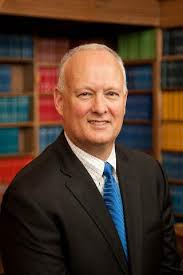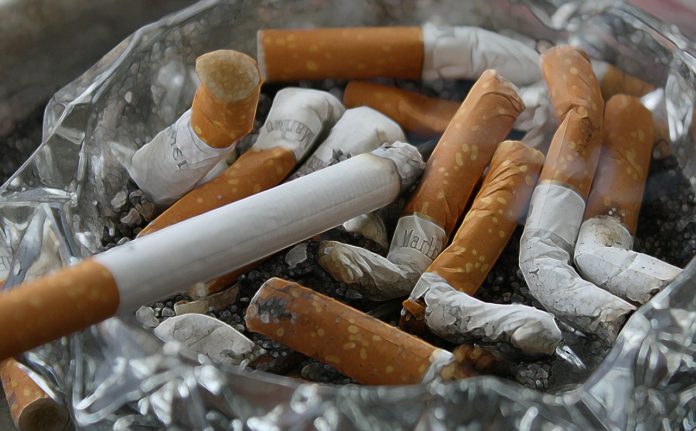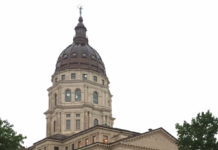(Updated to clarify that local governments could enforce 21-age ordinances)
A federal law setting 21 as the new age for legally purchasing tobacco products may not necessarily be the answer to addressing the vaping epidemic in Kansas.
Kansas can’t enforce the federal law because the state sets the age for buying tobacco products at 18, officials said.
Enforcement would be limited to the handful of cities and counties across Kansas with laws establishing 21 as the age for tobacco purchases, they said.
Kansas authorities say the state is not empowered to enforce the new federal age restriction without a law on the books raising the age from 18 to 21.
The federal law “puts enforcement by the state in a strange circumstance as it only has jurisdiction over state law,” said Zach Fletcher, spokesman for the Kansas Department of Revenue, which licenses tobacco retailers.
“This situation isn’t unique to Kansas, as other states are also waiting on state legislatures to change the statutes to mirror the federal age restrictions,” he said.
The new federal law enacted in December seemed to bring an end to the piecemeal approach to raising the tobacco age in the face of a vaping epidemic.
But now it is up to Kansas and potentially as many as 30 other states to raise their tobacco age to 21.

“Without similar measures passed at the state level, state enforcement will not be possible,” said Kansas Health Secretary Lee Norman.
“We must not stand idly by while an entire generation of youth becomes newly addicted to nicotine,” he said.
It’s an issue that other states have been grappling with since the federal law was enacted.
The federal government still has 270 days to promulgate rules governing enforcement of the age requirement.

Nebraska Attorney General Doug Peterson has told authorities there to enforce state law, which sets the legal age for buying tobacco at 19. It’s created some confusion with retailers there.
Similar questions have been raised in North Dakota, where one local prosecutor said it would be up to the federal government to enforce the new federal age requirement.
“We are aware that the change in federal law regarding tobacco sales has caused confusion around the state,” said Clint Blaes, spokesman for Attorney General Derek Schmidt.
“We anticipate that there will be legislative attempts to clarify how these changes in federal law will be implemented in Kansas, but at this time it is not a part of the attorney general’s legislative proposals,” Blaes said last month in an email.
There is now a bill in the Kansas House that would raise the tobacco age to 21 and ban cigarette vending machines as well as flavored vaping products (except menthol).
A hearing is set for Thursday before the Federal and State Affairs Committee.
The state legislation is seen as critical to enforcing the federal law, which mandates states enforce the 21-year-old age requirement or risk losing 10% of their substance abuse grants.
In Kansas, the grant money flows to the Kansas Department for Aging and Disability Services, which conducts controlled tobacco purchases to ensure compliance.
Federal law currently requires 80% of the retailers to comply with the age 18 requirement in order for Kansas to hold onto the federal grant money coming to the state.
Last year, the state made attempted tobacco purchases using 16- and 17-year-olds at 385 locations statewide, according to a state report.
They were able to make purchases at 34 retailers for a compliance rate of 91%.
The year before, the state made 318 attempted buys, of which 32 were successful.
The state leaves up to local law enforcement whether to prosecute a case for illegal tobacco sales.
The Department for Aging and Disability Services is waiting for instructions from the federal government about how to proceed with the new federal law.
“We’re still looking at 18 and under because we haven’t received any guidelines…requiring us to do anything other than that,” said agency spokeswoman Cara Sloan.
Agency officials said the state’s compliance rate has exceeded 90% in recent years, so there would have to be a dramatic increase in illegal tobacco sales before funding would be at risk.
“The compliance percentage we have in Kansas is pretty high,” said Andy Brown, commissioner for behavioral health services.
“We’d have to have a significant number of retailers start violating that before our percentage would drop that low.
“We don’t have any concerns about losing any federal dollars,” he said. “That’s not anything we’re worried about.”
Even if state and local governments can’t enforce compliance, there is still federal enforcement, Brown said.
Brown said retailers still need to comply with the federal law.
The Department of Revenue has sent letters to tobacco retailers advising them to follow the federal age requirement.
However, Rob Crane, president of Tobacco 21 and a family medicine professor at Ohio State University, doesn’t put much faith in federal enforcement of the age 21 requirement.
Crane, who has studied federal enforcement of the tobacco laws, said he is not aware of a state losing grant money in the last 25 years.
“The risk is purely theoretical,” he said.
He agreed that Kansas wouldn’t lose money if it can reach 80% compliance at age 21 without a state law.

“In absence of state law, why would a retailer possibly stop selling to 19-year-olds?” Crane asked.
He said tobacco enforcement would be up to the U.S. Food and Drug Administration, which carries out the same kind of so-called controlled purchases as the state.
The worst penalty the FDA can impose on a retailer, he said, is a ban on the sale of tobacco products.
A fine, he said, is viewed by the industry as the “cost of doing business” since the average convenience store sells hundreds of thousands of dollars in tobacco products.
A no-sale order, issued after five or more repeated violations within 36 months, is a different matter.
Crane crunched FDA enforcement data for the last decade.
His research showed that the FDA found 17,611 tobacco violations in 2018 out of about 147,000 inspections. No-sale orders were issued 27 times, he said.
Crane’s data shows that the FDA found violations 7% of the time in Kansas in 2018. The agency did 1,952 inspections and found 137 violations.
From 2011 to 2018, the FDA did about 1 million inspections nationally while finding about 98,000 violations.
One hundred twenty-three no-sale orders were issued – less than a percent out of all the violations found.
Crane said he would expect violations to rise with the increase in the tobacco age to 21.
“You may have some unsophisticated 16-year-old trying to buy, but that’s different from a sophisticated 19- or 20-year-old.
“I think it will be interesting to see what happens.”
















